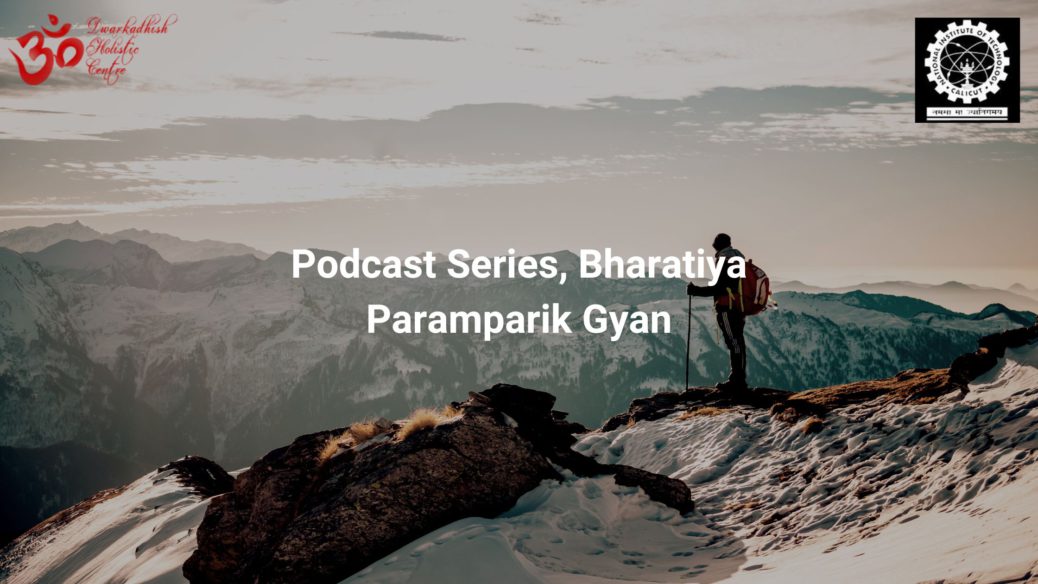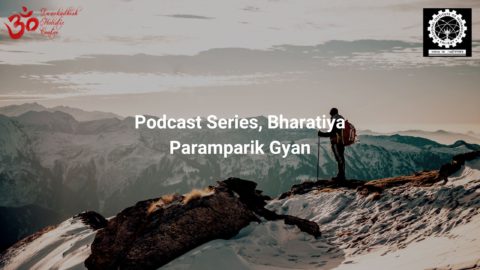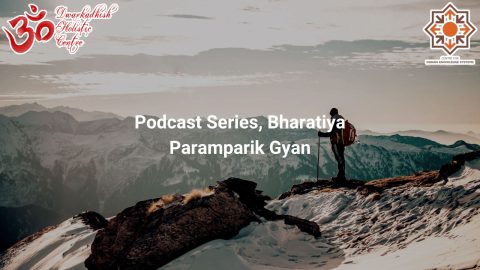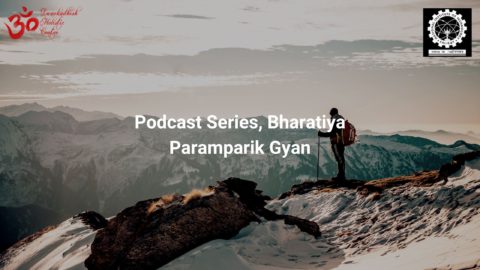Swadhyay in Modern Workplaces: Integrating Self-Study and Reflection to Enhance Personal and Professional Growth in Tech Startups
Introduction
Welcome to the “Bhartiya Paramparik Gyan” podcast series, hosted by Dhwani Shah, and presented by the Dwarkadhish Holistic Centre and the Centre for Indian Knowledge Systems at NIT Calicut. In today’s episode, we explore the topic of “Swadhyay in Modern Workplaces” with the esteemed Ila Sharma.
Ila Sharma is a distinguished People Practices professional celebrated for her expertise in cultivating people-centric cultures and driving organisational growth. Her impressive career, marked by various roles and notable achievements, underscores her reputation as a growth catalyst, emphasising empathy, inclusion, and purposeful leadership. Currently, Ila serves as the Global People Architect at super{set}, with prior experience at Sumo Logic, OYO, and Cvent, where she honed her skills in talent strategy, People Practices transformation, and leading high-performance teams.
Her dedication to integrating self-study and reflection within modern workplaces aligns perfectly with the traditional wisdom. Guided by Dhwani Shah, today’s discussion will delve into the concept of Swadhyay in tech startups, offering valuable insights into both personal and professional growth in today’s dynamic work environments.
Join us as we engage with Ila Sharma, a visionary leader who seamlessly bridges traditional wisdom with contemporary practices, providing a holistic approach to achieving success.
Topic Covered:
- Ms. Sharma, can you share with us your journey in the People Practices field and how your experiences at organisations like super{set}, Sumo Logic, OYO, and Cvent have shaped your approach to people management?
- How do you integrate traditional Indian knowledge systems, such as Swadhyay, into modern People Practises practices and organisational growth strategies?
- Given your expertise in fostering people-first cultures, what are some key principles or practices you believe are essential for creating an inclusive and empathetic workplace?
- Can you elaborate on the role of self-study and reflection in enhancing personal and professional development within tech startups?
- How do you see the concept of Swadhyay influencing leadership styles and decision-making processes in today’s dynamic work environments?
- As a Global People Architect, what are some innovative talent strategies you have implemented that align with the holistic approach advocated by the Dwarkadhish Holistic Centre?
- How do you balance the integration of traditional wisdom with contemporary People Practices to drive organisational growth and high-performance teams?
- Could you provide some examples of how you’ve successfully led People Practices transformations in your previous roles, and what impact these changes had on the organisations?
- In your opinion, what are the biggest challenges tech startups face in terms of talent strategy and People Practices transformation, and how can the principles of Bharatiya Paramparik Gyan help address these challenges?
- Lastly, what advice would you give to emerging People Practices leaders who aspire to incorporate holistic and traditional knowledge systems into their professional practices for achieving sustainable success?







